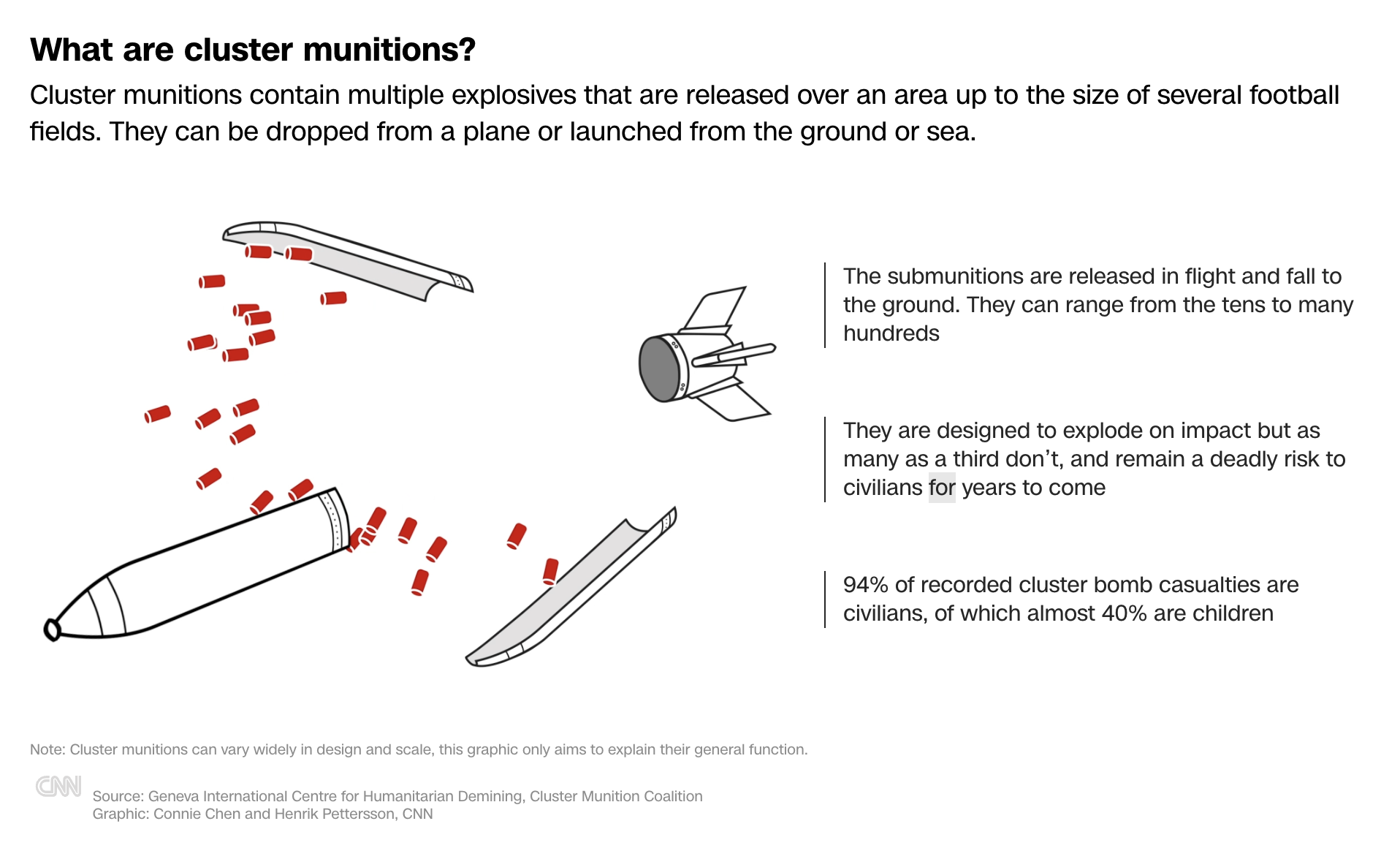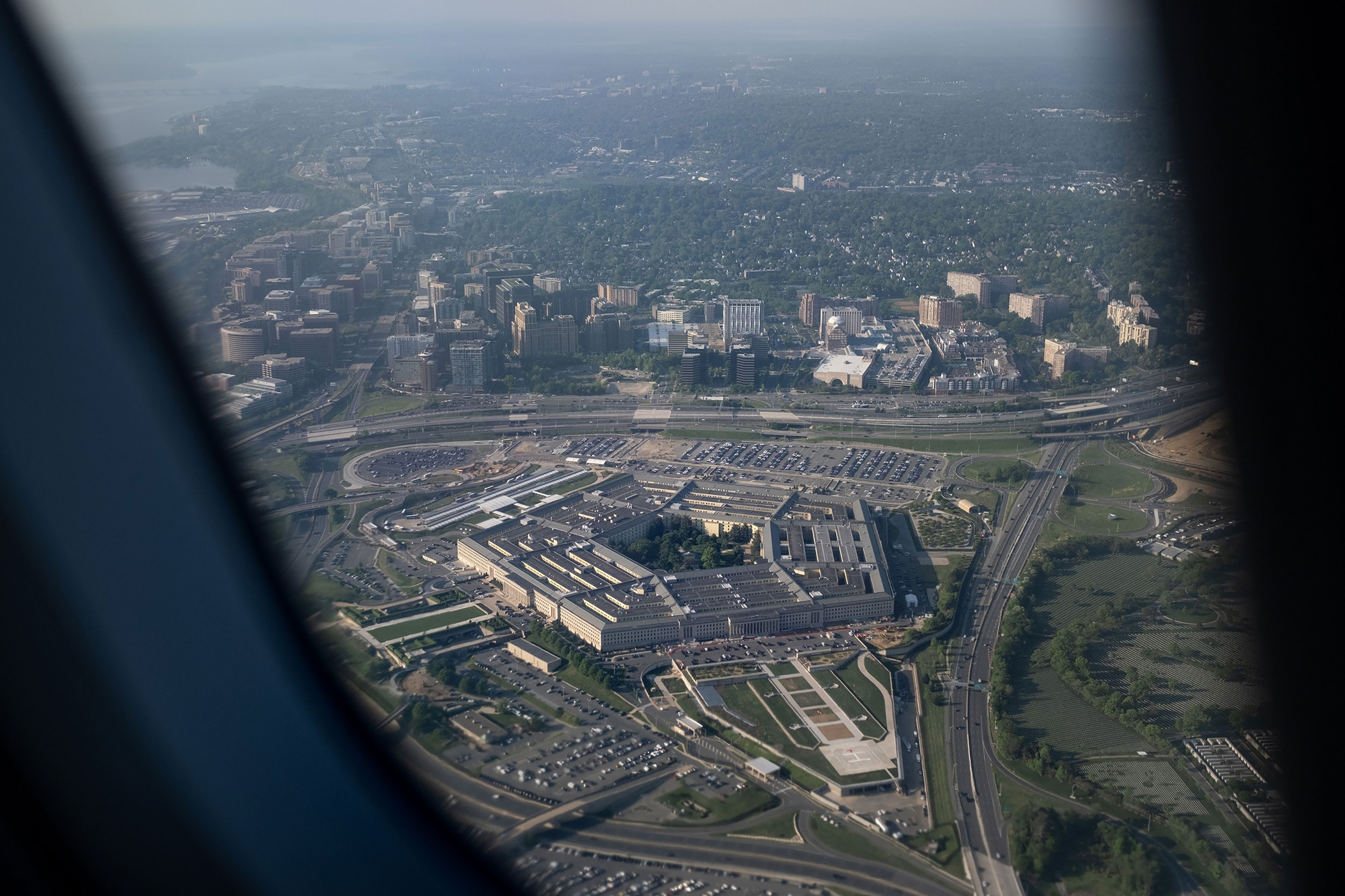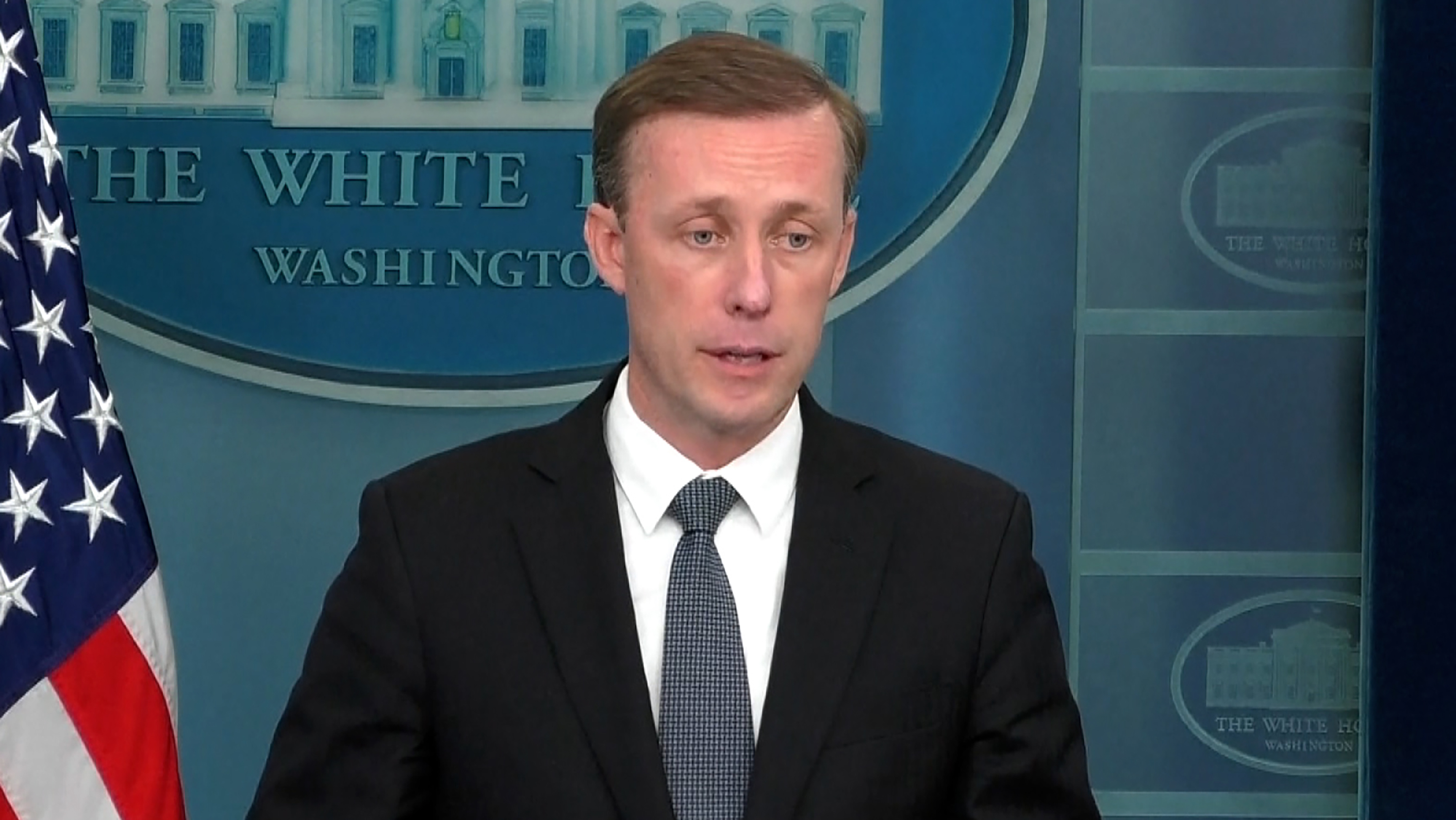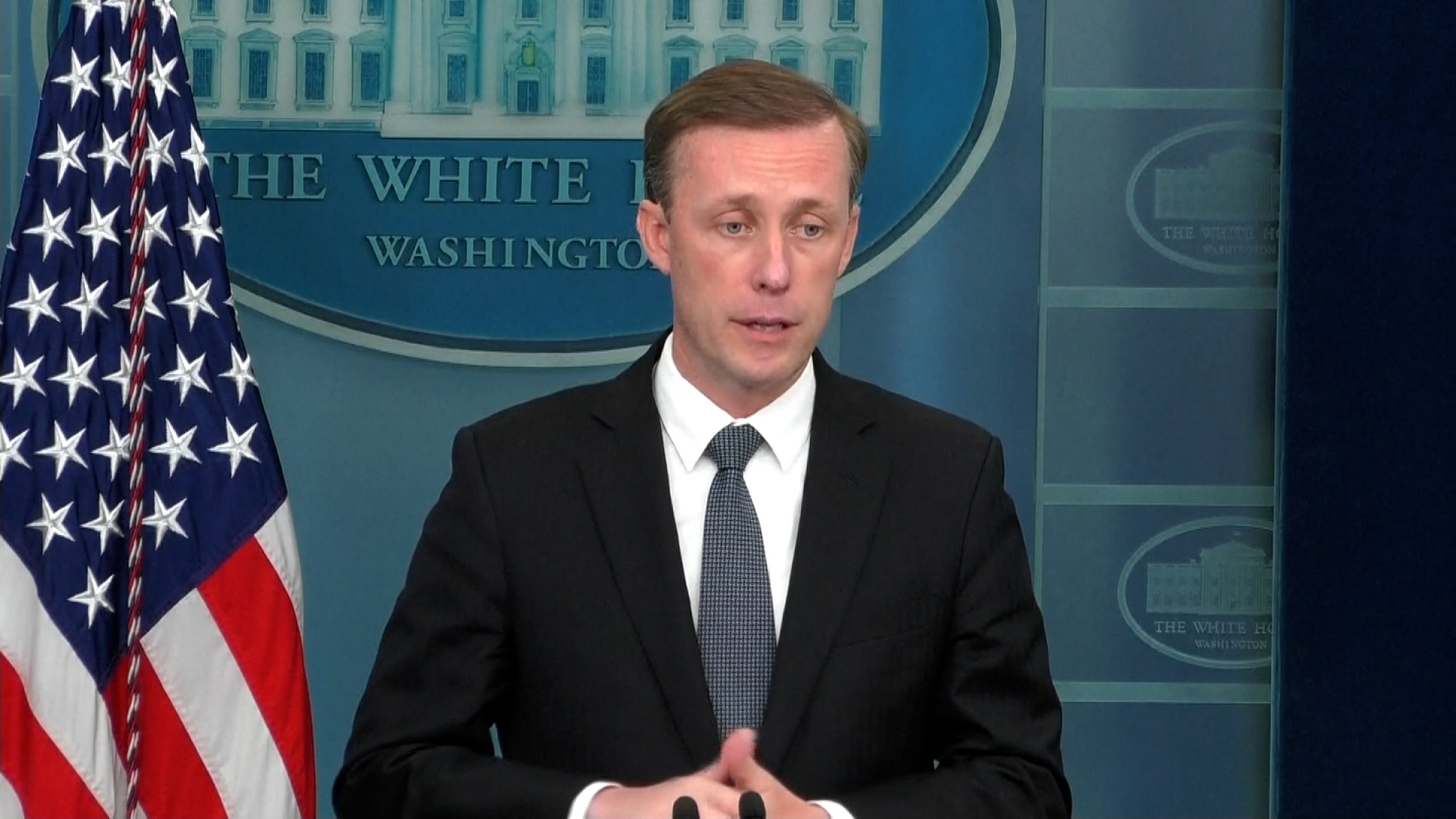The US Defense Department said that one of the primary reasons the US is providing cluster munitions to Ukraine is to help them punch through Russian defensive lines as the counteroffensive is "going a little slower than some had hoped."
"We want to make sure that the Ukrainians have sufficient artillery to keep them in the fight in the context of the current counteroffensive," said Under Secretary of Defense for Policy Colin Kahl at a news briefing. "And because things are going a little slower than some had hoped, there are very high expenditures of artillery."
Kahl said the munitions would be delivered to Ukraine "in a timeframe that is relevant for the counteroffensive."
Kahl also said the provisions of cluster munitions is also an important signal to Russia that “the Ukrainians are going to stay in the game.”
“(Russian President) Vladimir Putin has a theory of victory, OK? His theory of victory is that he will outlast everybody,” said Kahl. “That's why President (Joe) Biden has been clear that we're going to be with Ukraine as long as it takes, and why we are signaling that we will continue to provide Ukraine with the capabilities that will keep them in the fight.”
In response to the humanitarian concerns around cluster munitions, Kahl said that "the worst thing for civilians in Ukraine is for Russia to win the war, and so it's important that they don't."
Status of the counteroffensive: The Ukrainian military has so far failed to yield major gains in the early phases of its counteroffensive, documenting incremental advances on the front lines.
But Ukrainian President Volodymyr Zelensky has said he wanted to be strategic about where troops are being sent.
“Every meter, every kilometer costs lives,” he said earlier this month. “You can do something really fast, but the field is mined to the ground. People are our treasure. That’s why we are very careful.”
Chairman of the US Joint Chiefs of Staff Gen. Mark Milley has also said that the pace is not surprising, given that Russia has had time to bolster its defenses and "Ukrainian soldiers are assaulting through minefields and into trenches."
"So yes, sure, it goes a little slow, but that is part of the nature of war," Milley said.
CNN's Ivana Kottasová contributed reporting to this post.







